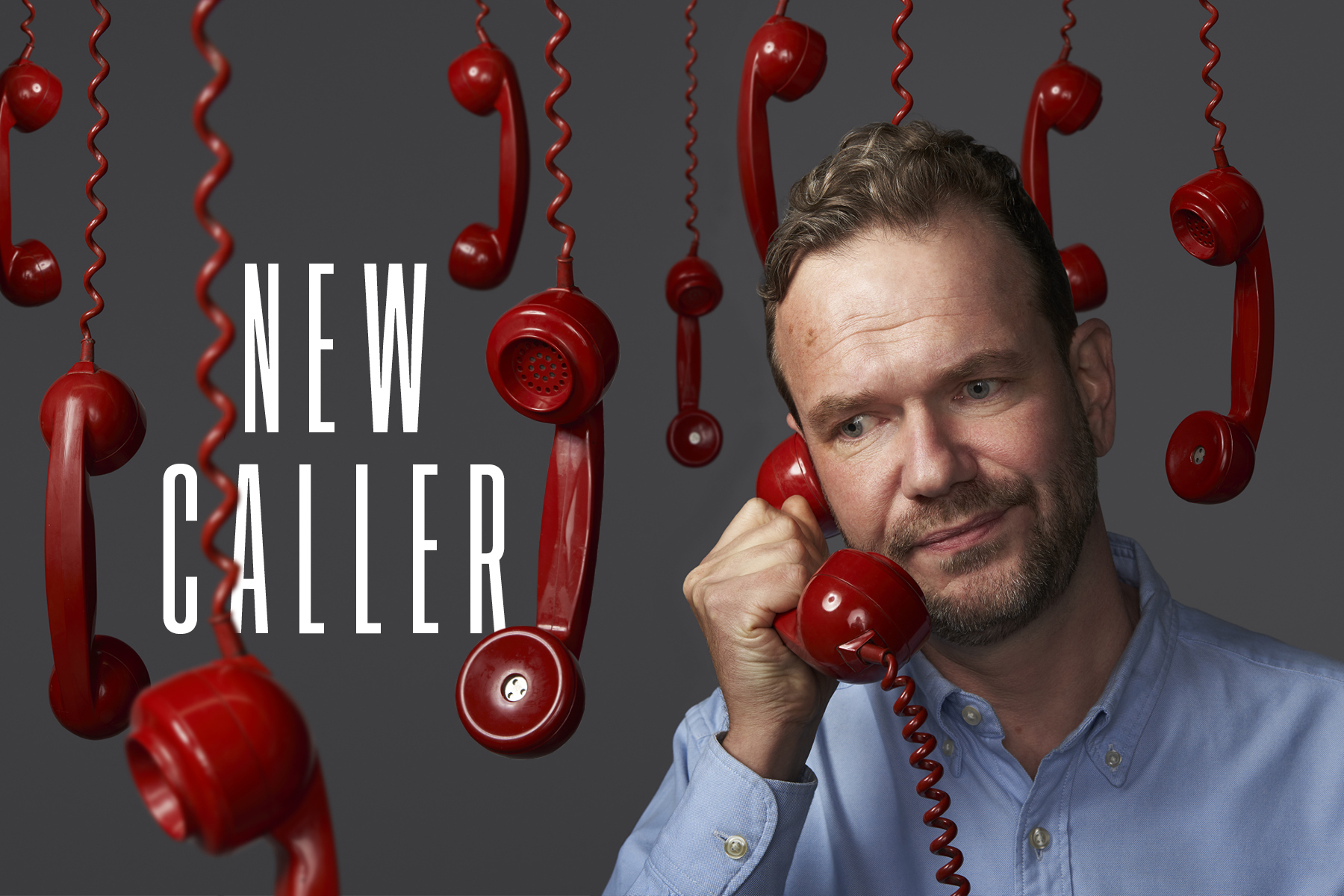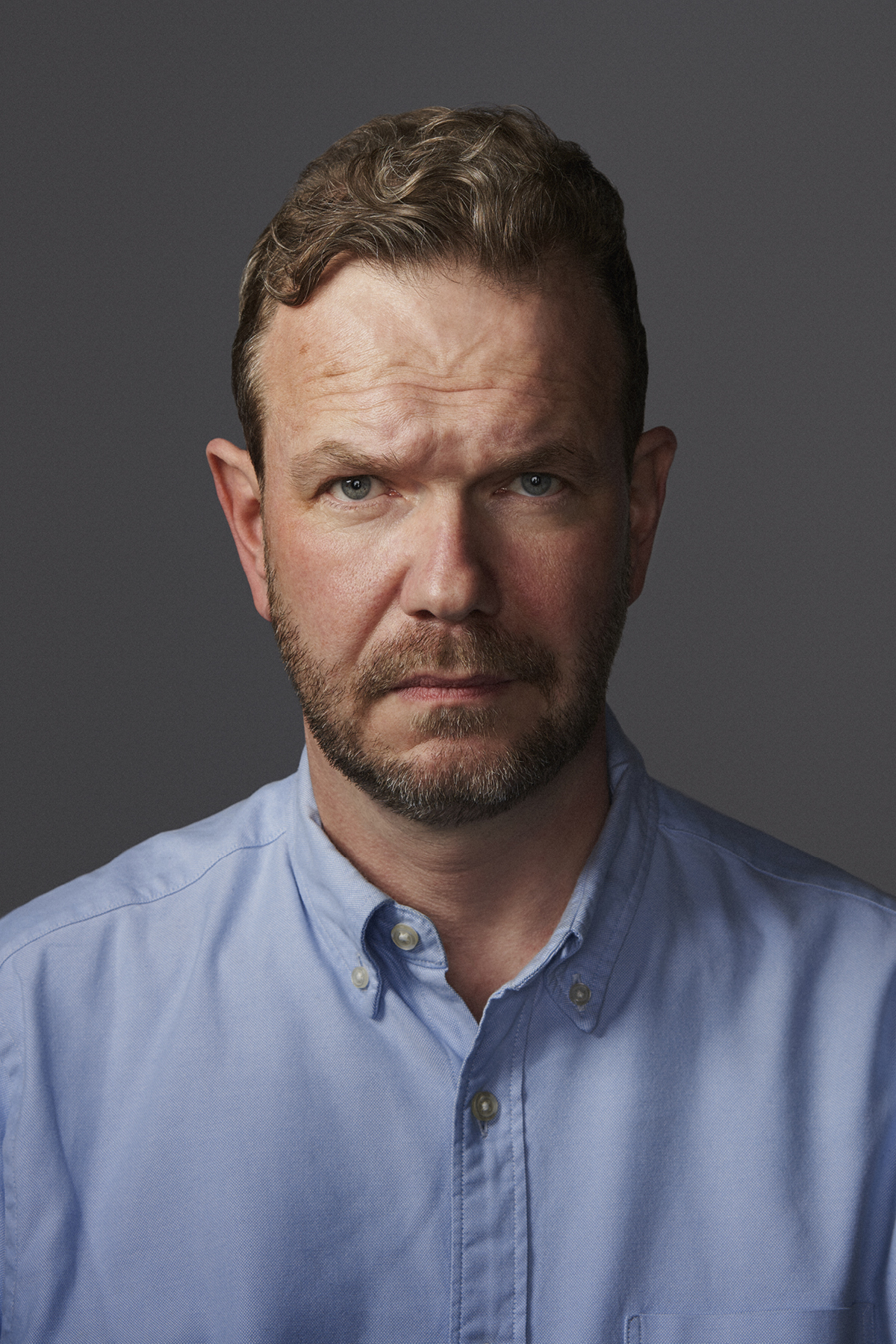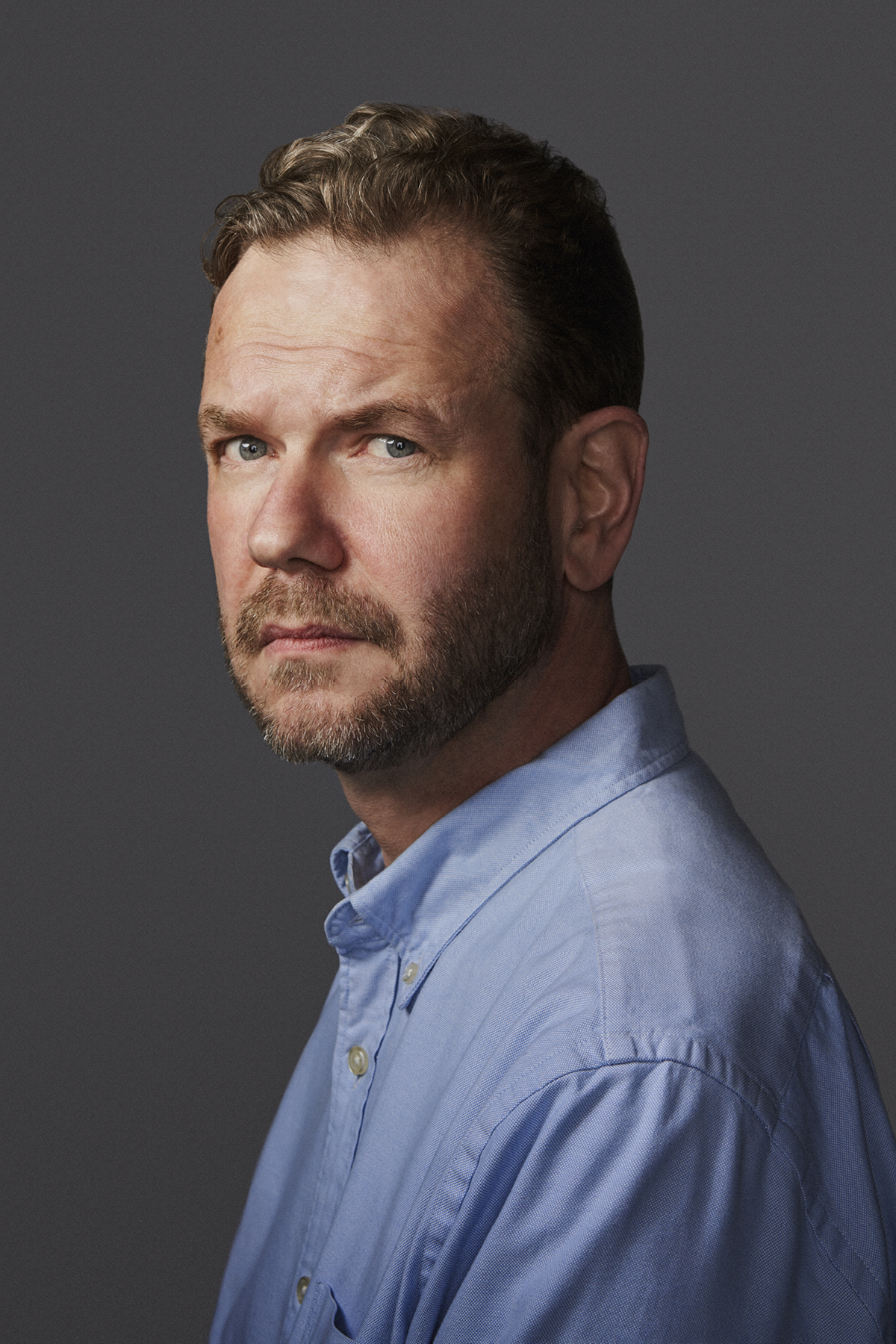
- Home |
- Search Results |
- James O’Brien on changing the mind of his toughest opponent yet: himself
James O’Brien on changing the mind of his toughest opponent yet: himself
The radio presenter has made a career out of taking people to task on their opinions. His new book, How Not To Be Wrong, is a candid account of childhood, therapy and the times he's been the one who needed a good talking to.
How much of the mess the world is in right now is down to powerful men refusing to admit when they’re wrong?
The day I meet James O’Brien, Donald Trump has just heaved his way to the top of the White House steps and, in a moment of macabre theatre, removed his mask before the watching cameras. Just out of hospital, where he has been treated for Covid-19, the President’s laboured breathing is obvious beneath his defiant scowl.
By this point the death count in America has already tipped over 200,000, while for months Trump has ignored scientific advice by not covering his face in public and equivocating on its effectiveness. At his rallies, thousands of supporters follow his lead.
'My last book had the most arrogant title in history'
The concept of changing your mind is the subject of O’Brien’s new book, How Not To Be Wrong, though the radio presenter’s target, ostensibly at least, is himself rather than any member of the political establishment. It is a marked departure for the man famous for – in internet parlance – routinely ‘owning’ or ‘destroying’ hapless politicians and members of the public who call into his LBC show, and from his previous bestseller, How To Be Right.
"The last book was about other people being wrong," he says. "I mean, it’s got to be among the most arrogant book titles in history, and it was obviously intended to be slightly tongue in cheek. But I couldn’t claim it was completely tongue in cheek. So when I came to write this one, I thought: how can I write a book that properly has a crack at unpicking these positions of stubbornness and dangerous intransigence? Suddenly, like the clouds clearing, like a lightbulb moment, I thought: well, write about your own fuck-ups. So I did."
In-person, O’Brien is funny, direct and very engaging company. The book’s mea culpas, which range in topic from judging people with tattoos to struggling to understand white privilege, share the same qualities. Usually supported by transcripts of on-air conversations, he is careful not to brush over his initial responses – which are often defensive or, in his words, 'horribly patronising' to callers – instead explaining with candour how he came to change his position later.

Where the book gets into really powerful territory is in explaining what brought him to this new place of introspection. A recent family crisis convinced O’Brien to try therapy, something he was deeply sceptical of but soon made him feel “as though someone had lifted medicine balls off both my shoulders”, realising, as he writes in the book:
‘The thought processes and emotional reflexes that had become hard-wired into my brain as a frightened but outwardly fearless little boy at boarding school were still defining the behaviour of a middle-aged father and husband who, when push came to shove, was not proving to be as good at either role as he wanted to be.’
Soon, O’Brien was on a journey familiar to anyone who has been fortunate – and brave – enough to do the hard work with a good therapist: unpicking the grand narratives of his past and the stories he told himself in order to survive. Already on record discussing how he was routinely beaten while at boarding school, O’Brien shares how, now in his 40s, he began to confront the true emotional toll of the experience.
'I'd go somewhere and I’d howl and cry – and make sure no one ever saw it.'
"The first part is you admit that you’re afraid and then you work out why," he says. "So since the age of 10, when I first started getting beaten by my headmaster at prep school, I have not been afraid of anything. That was my cradle, that’s who I thought I was, the boy who got beaten more than any other in the history of the school – hell yeah!
"And I spent 30 years of my life saying: ‘It didn’t do me any harm’ and arguing on the telly and on the radio about why corporal punishment, if it was used sparingly and intelligently, was a wonderful way of disciplining young children.
"[But] I was really scared. I was broken. I’d get myself off somewhere alone at the age of 10, 11, 12 and I’d howl and I’d cry, and no one ever saw it. Then I’d march back in again and I was Jimbo, the boy that got beaten a lot."
The combative persona he forged at school helped propel his career in journalism ("I needed to be able to have stand-up rows in newspaper offices with people who were 30 years older than me"), but part of the catalyst for seeking help was realising how deeply his father, the man who inspired his career, derived self-worth from professional success.

"I lost my dad at the end of 2012, and I realised afterwards that he’d never really recovered from being made redundant from the Daily Telegraph. And it broke my heart. He was such a magnificent man, regardless of what it said on his business card, and I know that and mum knows that and my sister knows that. Nobody stopped wanting to be his friend, nobody stopped loving him, nobody stopped rating him or respecting him. But I realise he had died disappointed, and I was desperate not to be the same."
How Not To Be Wrong is finely tuned to the way even seemingly small and easy to overlook traumas can, left unaddressed, fester over time into prejudices lashed out against the world. O’Brien, for example, links his aforementioned aversion to teachers or nurses displaying body art to being scared as a child by someone with face tattoos who threatened his mother.
But the book doesn’t duck when O’Brien has found himself on the wrong side of far more emotive issues. The conversation that changed his understanding of white privilege, for example, came from a woman called Emma who challenged him on the lack of diversity at the radio station he works for. The man once described as ‘the consciousness of liberal Britain’ balked.
"I patronised her horribly without really realising it," he says. "Then I saw the little bonfire on social media afterwards, which was 100% critical of me. The old me would have doubled down, but instead, it made me wonder where my own cynicism and scepticism had come from. I remember thinking: ‘Why did you struggle with the idea of being privileged?'"
The root of his objection, he says, was in feeling like "it diminished my night terrors of 20 years ago when I thought I was gonna be measuring inside legs for the rest of my life" (O’Brien was a shop assistant at a clothing shop before starting his career as a journalist).
“You hear ‘white privilege’, you hear a criticism of you personally. But it’s a systemic, societal issue and the effort you need to put into denying that it exists is immense. And Emma made the point brilliantly, because I’m sitting there bridling at the thought that I can only show my allegiance to, or support for the idea that Black Lives Matter, by resigning my job and handing it over to a person of colour. And, you know, ultimately, there might be some truth in that. But rather than denying the guilt or the consciousness that goes along with that thought, you have to acknowledge it and if you acknowledge it, you come closer to being honest with yourself."
"I have a fundamental belief that, given a chance, everybody would be better than they are.”
A defensive posture can be particularly damaging when it's adopted by the most powerful people in the world. We’ll never know what could have been changed or achieved if Trump had stood on those steps and, instead of taking off his mask, implored everyone else to wear one. Or if closer to home, Boris Johnson stopped chest-thumping about ‘world-class’ track and trace and responded to the enormous challenge of Covid-19 with greater pause and humility. This inability to admit you may ever be wrong – associating doing so only with weakness – is something O’Brien believes is particularly prevalent among the privileged and privately educated, and he should know.
'Now that I am able to recognise where I was going wrong,' he writes, 'I see people with very similar mindsets and backgrounds continuing to flourish in public life.'
When I quote this back to him, he expands: "You still see people like I used to be, being feted and hired because they’re great at starting fights. And that’s fine if you’re having an argument about something relatively trivial. But I think [the problem] it is that the ones who have over-developed egos, or under-developed attributes in other areas of life, are the ones who believe they are gonna end up Prime Minister and want to be king of the world."
But what about those interactions that have taught him so much, with members of the great British public? What, if anything, will change about his approach to that now?
How Not To Be Wrong outlines three questions O’Brien thinks are crucial to encouraging people to change their minds: What are you afraid of? What are you angry about? Where does your power lie? While these may prove difficult to translate to a live radio setting, increasingly his approach with callers is not to shoot down or deconstruct their arguments but try and probe into the fears or experiences that may lie behind them.
"I used to derive a degree of pleasure in the gladiatorial nature of it,” he admits, “whether on telly with someone else who’s in the public eye or on the radio with somebody who isn’t. But the joy of delivering the knockout blow was hollow.”
“[Now] I speak to people who are angry and don’t know why, and I don’t want them to be angry anymore. I know that their life would be hugely improved if they weren’t.
"I just have a fundamental belief that everybody’s alright, and given a chance, everybody would be better than they are."
I wonder whether, should the fatigue we’re feeling at the deep polarisation and political dogmatism of this wretched year continue, we may one day start to see video clips of moments of civility rather than conflict go viral, something like a YouTube clip titled: 'Watch James O’Brien completely EMPATHISE with guest and come to a polite agreement!!'.
"That would be great," he says, "wouldn’t it?"
What did you think of this article? Let us know at editor@penguinrandomhouse.co.uk.